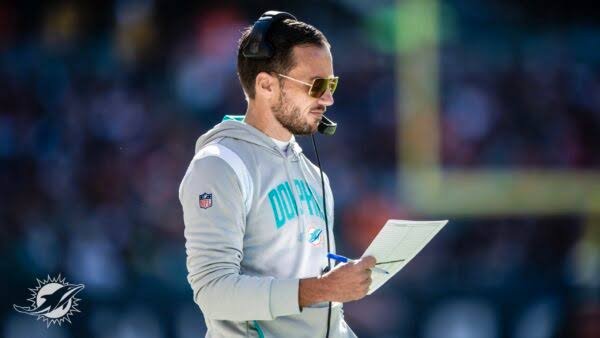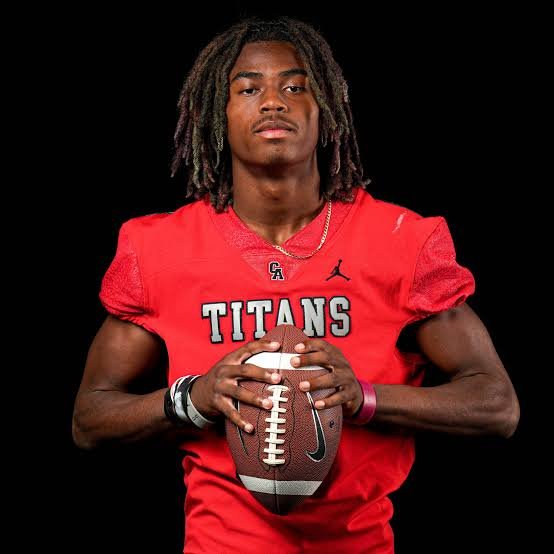“Miami Dolphins’ Hidden Accountability Crisis: Is the Team’s Future at Stake?”
Miami Dolphins’ Hidden Accountability Crisis: Is the Team’s Future at Stake?
As the Miami Dolphins gear up for another promising NFL season, whispers of internal turmoil and accountability issues echo through the organization. Despite a roster bursting with talent and potential, recent events have raised concerns about whether the team is operating with the discipline and cohesion necessary to achieve success. With a passionate fanbase and high expectations, the question now looms: does the Miami Dolphins organization have an accountability problem, and could it jeopardize the team’s future?
### The Current State of the Dolphins
The Miami Dolphins have always been a franchise of allure; the legacy includes two Super Bowl wins in the early 1970s and an esteemed history of Hall of Fame players. Under the leadership of head coach Mike McDaniel, the team reached the playoffs last season, signaling a resurgence for a long-struggling franchise. However, an undercurrent of discontent has led many analysts and insiders to question the culture within the organization.
### Player Accountability: A Growing Concern
Player accountability has become a central topic of discussion as reports of misconduct and lack of discipline circulate. High-profile incidents involving key players raise concerns about the overall team ethos. Players like quarterback Tua Tagovailoa and wide receiver Tyreek Hill, while inherently talented, find themselves at the center of scrutiny over training habits, off-field distractions, and decision-making.
Fan speculation intensified after a few internal team meetings were leaked, in which players expressed frustration over some teammates’ commitment levels. These revelations highlight the fissures within player relationships and raise the question of whether the team is fully aligned in pursuit of a common goal. Accountability is a cornerstone of any successful organization, and the Dolphins’ inability to address these issues could lead to a fractured locker room.
### Coaching Challenges
Coach McDaniel’s leadership style has, undoubtedly, garnered attention. While he is lauded for his innovative offensive strategies and player-friendly approach, critics argue that there is a lack of stringent accountability measures in place. In a recent press conference, McDaniel attempted to address concerns about player behavior, stating, “We all have a role and responsibility, but fostering a family atmosphere is key to our success. We encourage open dialogue and trust that each player will rise to the occasion.” However, the team’s positive culture might be masking deeper issues that have yet to be confronted.
Veteran players in the locker room hold considerable sway in a team’s culture. If those players fail to set an example, younger teammates might emulate irresponsible behavior. As the franchise looks to the future, it is crucial to cultivate accountability—players must understand that their individual performance impacts the entire team.
### Front Office Decisions
Moving beyond player behavior, the front office’s role in fostering accountability is equally important. General Manager Chris Grier has been at the helm as the Dolphins have made significant roster acquisitions, investing in talent through trades and the draft. Yet, some critics argue that a lack of clear expectations for performance and conduct has perpetuated a culture of complacency.
The Dolphins gained notoriety for their aggressive pursuit of talent, surrounding Tagovailoa with an elite receiving corps. While this approach could lead to on-field success, the front office must establish a robust accountability framework to monitor not just performance statistics, but also player behavior and discipline. Lack of accountability may lead to decisions that, while initially appearing to be advantageous, ultimately undermine team unity and long-term success.
### Consequences of Inaction
Failing to address these questions of accountability could have dire consequences for the Dolphins as they aspire to build a championship-caliber team. Poor performance often correlates with low morale, which can further exacerbate accountability issues. In recent seasons, many teams have showcased that roster talent alone doesn’t guarantee success; cohesiveness, culture, and accountability play indispensable roles.
In the short term, an unresolved accountability crisis may lead to lower team performance, costing the franchise valuable wins and ultimately impacting playoff opportunities. Moreover, the long-term consequences are even more troubling; potential free agents may think twice before signing with a team perceived to lack internal discipline. The team’s ability to attract and retain top talent will significantly depend on how they navigate and address their accountability issues.
### The Fan Perspective
Dolphins fans have remained loyal throughout the team’s struggles, yearning for success after years of disappointment. With increasing access to insider information and social media commentary, they are acutely aware of the team’s internal challenges. An article published in a prominent sports magazine recently lamented, “The Dolphins’ struggles are increasingly contagious; fans now worry that the team is a reflection of poor accountability from the top down.”
This growing sentiment among the fanbase poses a challenge for the Dolphins organization—a disconnect between the team and its supporters must be mended. Trust can quickly erode, and fans may lose patience if the team fails to take accountability seriously. Workforce attendance, merchandising revenue, and overall financial health can be impacted by fan disenchantment, making the situation all the more pressing.
### Moving Towards a Solution
To avert a full-blown accountability crisis, the Dolphins need to implement changes across various levels of the organization. Initiatives might include transparent communication strategies between players and coaching staff, the introduction of leadership workshops, and mentorship programs that focus on personal accountability.
Moreover, the organization should consider expanding their performance and behavioral metrics. Establishing a culture of accountability starts with setting clear expectations and consequences; regular evaluations can be instrumental in maintaining high standards throughout the roster.
### Conclusion
The Miami Dolphins have an opportunity to rectify their accountability issues before they spiral out of control. The combination of emerging talent and recent playoff appearances carries an air of excitement, but that potential can be squandered without a unified commitment to accountability. As the team prepares for the upcoming season, it must confront these internal struggles head-on, fostering a culture aligned with their goals. If they’re successful, the Dolphins may not only secure their immediate future but also embark on a path toward sustained excellence.
For the passionate Dolphins fans and the organization itself, the stakes have never been higher. The time to hold themselves accountable is now—before it’s too late.




Post Comment